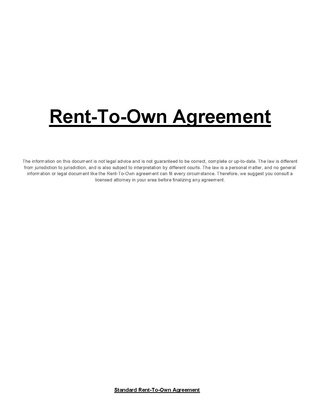In law, possession is the control a person intentionally exercises toward a thing. Like ownership, the possession of anything is commonly regulated under the property law of a jurisdiction. In all cases, to possess something, a person must have an intention to possess it as well as access to it and control over it. A person may be in possession of some piece of property without being its owner.
In law, conveyancing is the transfer of legal title of real property from one person to another, or the granting of an encumbrance such as a mortgage or a lien. A typical conveyancing transaction has two major phases: the exchange of contracts and completion.
An estate in land is, in the law of England and Wales, an interest in real property that is or may become possessory. It is a type of personal property and encompasses land ownership, rental and other arrangements that give people the right to use land. This is distinct from sovereignty over the land, which includes the right to government and taxation.

A lease is a contractual arrangement calling for the user to pay the owner for the use of an asset. Property, buildings and vehicles are common assets that are leased. Industrial or business equipment are also leased. In essence, a lease agreement is a contract between two parties: the lessor and the lessee. The lessor is the legal owner of the asset, while the lessee obtains the right to use the asset in return for regular rental payments. The lessee also agrees to abide by various conditions regarding their use of the property or equipment. For example, a person leasing a car may agree to the condition that the car will only be used for personal use.
A leasehold estate is an ownership of a temporary right to hold land or property in which a lessee or a tenant has rights of real property by some form of title from a lessor or landlord. Although a tenant does hold rights to real property, a leasehold estate is typically considered personal property.

In common law systems, land tenure, from the French verb "tenir" means "to hold", is the legal regime in which land "owned" by an individual is possessed by someone else who is said to "hold" the land, based on an agreement between both individuals. It determines who can use land, for how long and under what conditions. Tenure may be based both on official laws and policies, and on informal local customs. In other words, land tenure implies a system according to which land is held by an individual or the actual tiller of the land but this person does not have legal ownership. It determines the holder's rights and responsibilities in connection with their holding. The sovereign monarch, known in England as the Crown, held land in its own right. All land holders are either its tenants or sub-tenants. Tenure signifies a legal relationship between tenant and lord, arranging the duties and rights of tenant and lord in relationship to the land. Over history, many different forms of land tenure, i.e., ways of holding land, have been established.
A real estate contract is a contract between parties for the purchase and sale, exchange, or other conveyance of real estate. The sale of land is governed by the laws and practices of the jurisdiction in which the land is located. Real estate called leasehold estate is actually a rental of real property such as an apartment, and leases cover such rentals since they typically do not result in recordable deeds. Freehold conveyances of real estate are covered by real estate contracts, including conveying fee simple title, life estates, remainder estates, and freehold easements. Real estate contracts are typically bilateral contracts and should have the legal requirements specified by contract law in general and should also be in writing to be enforceable.

A Lease-Purchase Contract, also known as a lease purchase agreement or rent-to-own agreement, allows consumers to obtain durable goods or rent-to-own real estate without entering into a standard credit contract. It is a shortened name for a lease with option to purchase contract. For real estate, a lease purchase contract combines elements of a traditional rental agreement with an exclusive right of first refusal option for later purchase of the home.
Property management is the operation, control, maintenance, and oversight of real estate and physical property. This can include residential, commercial, and land real estate. Management indicates the need for real estate to be cared for and monitored, with accountability for and attention to its useful life and condition. This is much akin to the role of management in any business.
Hypothec, sometimes tacit hypothec, is a term used in civil law systems or to refer to a registered real security of a creditor over real estate, but under some jurisdictions it may additionally cover ships only, as opposed to other collaterals, including corporeal movables other than ships, securities or intangible assets such intellectual property rights, covered by a different type of right (pledge). Common law has two main equivalents to the term: mortgages and non-possessory lien.
As a legal term, ground rent specifically refers to regular payments made by a holder of a leasehold property to the freeholder or a superior leaseholder, as required under a lease. In this sense, a ground rent is created when a freehold piece of land is sold on a long lease or leases. The ground rent provides an income for the landowner. In economics, ground rent is a form of economic rent meaning all value accruing to titleholders as a result of the exclusive ownership of title privilege to location.
A rental agreement is a contract of rental, usually written, between the owner of a property and a renter who desires to have temporary possession of the property; it is distinguished from a lease, which is more typically for a fixed term. As a minimum, the agreement identifies the parties, the property, the term of the rental, and the amount of rent for the term. The owner of the property may be referred to as the lessor and the renter as the lessee.

In legal parlance, a peppercorn is a metaphor for a very small cash payment or other nominal consideration, used to satisfy the requirements for the creation of a legal contract. It is featured in Chappell & Co Ltd v Nestle Co Ltd, which stated that "a peppercorn does not cease to be good consideration if it is established that the promisee does not like pepper and will throw away the corn". However, the cited passage is mere dicta, and not the basis for the decision.
Leaseback, short for "sale-and-leaseback", is a financial transaction in which one sells an asset and leases it back for the long term; therefore, one continues to be able to use the asset but no longer owns it. The transaction is generally done for fixed assets, notably real estate, as well as for durable and capital goods such as airplanes and trains. The concept can also be applied by national governments to territorial assets; prior to the Falklands War, the government of the United Kingdom proposed a leaseback arrangement whereby the Falklands Islands would be transferred to Argentina, with a 99-year leaseback period, and a similar arrangement, also for 99 years, had been in place prior to the handover of Hong Kong to mainland China. Leaseback arrangements are usually employed because they confer financing, accounting or taxation benefits.
For the oil and gas terminology of overriding royalty interest, pleasesee Overriding Royalty Interest.

A freehold, in common law jurisdictions such as England and Wales, Australia, Canada, Ireland, and twenty states in the United States, is the common mode of ownership of real property, or land, and all immovable structures attached to such land.

Landlord–tenant law is the field of law that deals with the rights and duties of landlords and tenants.

English land law is the law of real property in England and Wales. Because of its heavy historical and social significance, land is usually seen as the most important part of English property law. Ownership of land has its roots in the feudal system established by William the Conqueror after 1066, but is now mostly registered and sold on the real estate market. The modern law's sources derive from the old courts of common law and equity, and legislation such as the Law of Property Act 1925, the Settled Land Act 1925, the Land Charges Act 1972, the Trusts of Land and Appointment of Trustees Act 1996 and the Land Registration Act 2002. At its core, English land law involves the acquisition, content and priority of rights and obligations among people with interests in land. Having a property right in land, as opposed to a contractual or some other personal right, matters because it creates priority over other people's claims, particularly if the land is sold on, the possessor goes insolvent, or when claiming various remedies, like specific performance, in court.
The South African law of sale is an area of the legal system in that country that describes rules applicable to a contract of sale, generally described as a contract whereby one person agrees to deliver to another the free possession of a thing in return for a price in money.

A retail lease is a legal document outlining the terms under which one party agrees to rent property from another party. A lease guarantees the lessee use of an asset and guarantees the lessor regular payments from the lessee for a specified number of months or years. Both the lessee and the lessor must uphold the terms of the contract for the lease to remain valid.





